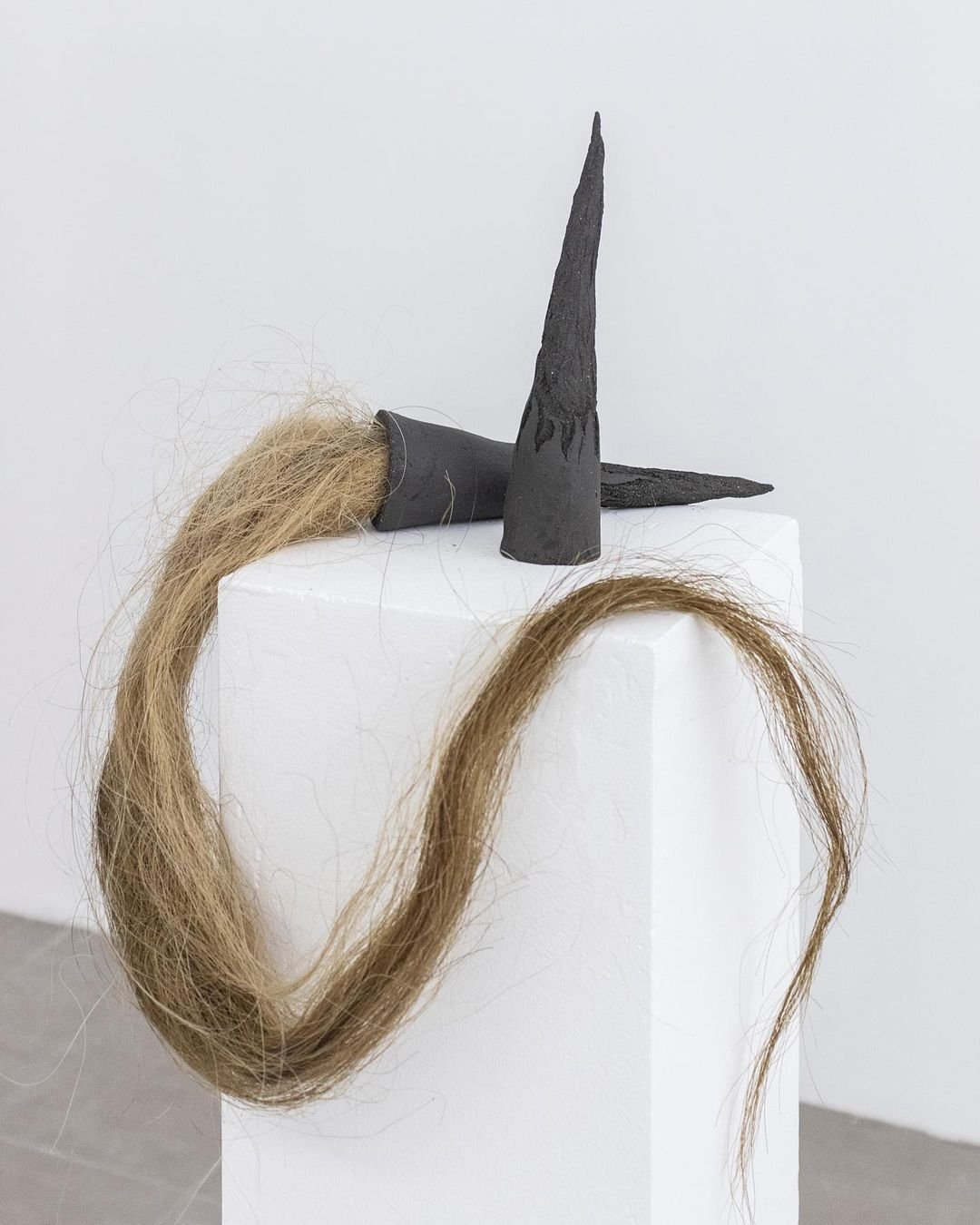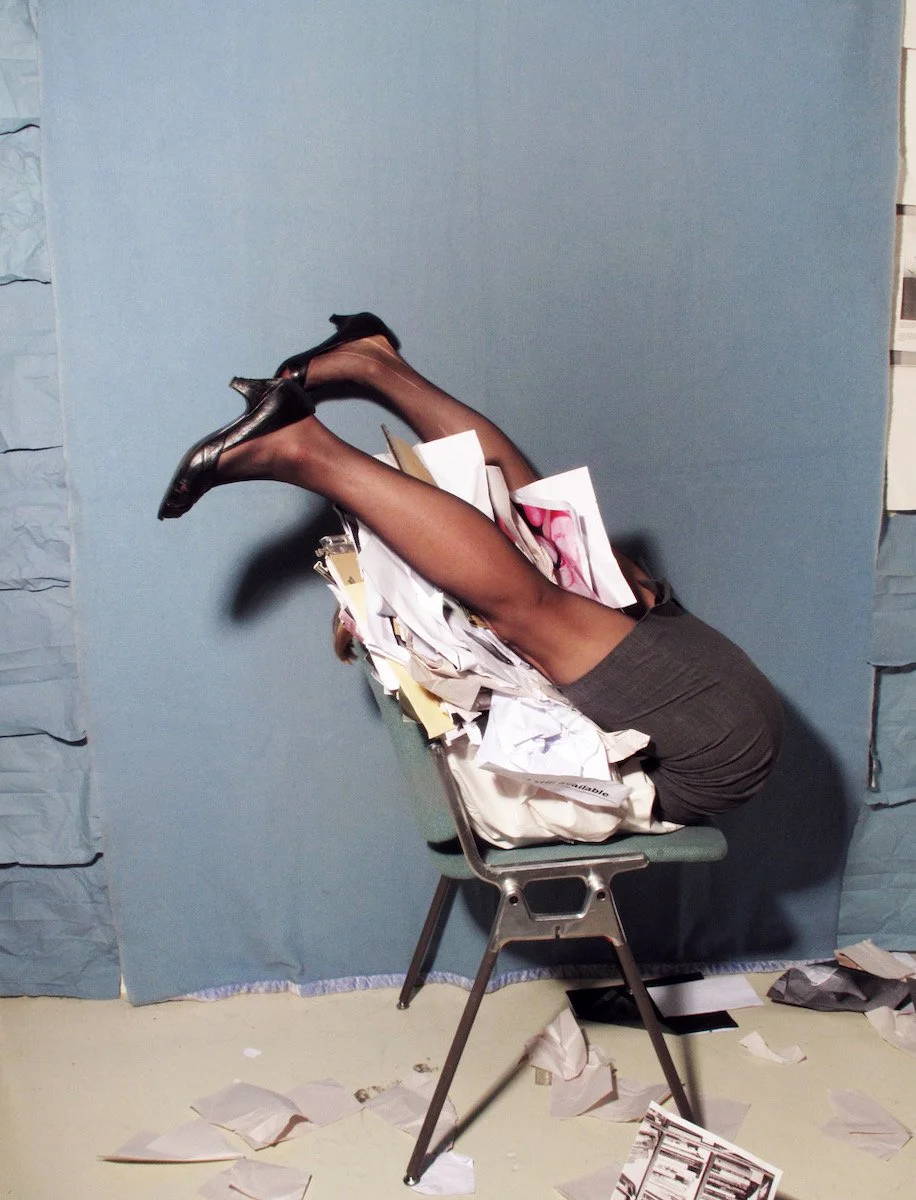Juliette Feck
Juliette Feck's gesture is the resonance of an incarnation emerging from distant memory. Her works invoke a process of metamorphosis through the modeling of ceramics. Powerful as a breath of life, they claim to be the mark of dissidence, a form of resistance to the norm.
Juliette, what you would have done if not made art, What impact does this have on you?
Hello Jag,
Thanks for the invitation.
In the way of proceeding, I feel very close to researchers, biologists, archaeologists, ethnologists… I would probably have gone down this path.
It's quite cliché, but the person answering the most simply and precisely to this question remains Robert Filliou; “Art is what makes life more beautiful than art”. Art adds meaning to our lives. It allows us to combine knowledge and sensations by freeing ourselves from hierarchies. Art is free to go where it wants. Like he wants.
Everyone somewhere or another has been influenced by their childhood. Could you please walk us through your own progressing years? How was growing up for you, Was it certain that you’d choose art?
I grew up in a garage between the sea and the Normandy countryside. This powerful contrast between life in nature and wandering between tires and hydrocarbons has deeply nourished my reflections as well as my personality, and my imagination. My creation constantly evokes this zone of friction between worlds that touch each other despite their inability to understand each other.
Art has always been part of our family. My mother was a dancer and painter. When I was little she suffered from being a precursor to the primitive dance movement. His "dance company" was constantly relayed in the category: "out of competition" because it was too avant-garde for the very conservative dance milieu at the time. Now we see this type of performance everywhere. His fight has nourished and always nourished my strength to be stubborn and to remain honest.
How did all this start, How art became your professional inclination?
Art has always been there. He breathes in me like the wind blows the leaves in the fall.
You have been exhibiting since 2016, What influence lockdown have on you and your work?
I have been exhibiting for longer but indeed, but I started to professionalize myself in 2016. To be honest, like many people, I enjoyed the first confinement. I am lucky to have cheap accommodation/workshop in a former butcher's shop in Marseille. It was sunny. We walked and read in the sun for hours. I enjoyed the tranquility it brought to the city. I wish the city was always so peaceful. Without a car. Simply human circulations, breaths. As a result of this indeed, more exposure mounted exhibits that no one can see and more money. But this experience opened consciences for many humans and I am delighted even if it was done at the cost of a heavy sacrifice.
I wonder what inspires and influences you for the subject and topics that you work on. How does the concept flow for you?
I work a lot on intuition. As I told you before, it is the areas of tension and friction that interest me. I often proceed by vision, like dreams. Always in total connection with the material, I visualize connections and forms then everything intertwines and crystallizes in a state, a thought/form.
My work can be included in the eco-feminist movement since I link the notions of patriarchy and capitalism to violence against women and to "nature". There is always an influence of magic, esotericism, and series b. which coats my work. The background remains very political. For me, art is always political. Exercising it is already a form of resistance.
In the current times when experiences are heavily influenced by technology, Art today has a symbiotic relationship with this evolution. So as we are building technology, the very technology is beginning to build us simultaneously. Would you agree on the fact that on both subtle and prominent scales we might become more mechanic than organic entities?
It's so disturbing to see us all become trans-human. At the same time, it is fascinating. I wonder about the roads we will take. Several are emerging and going in opposite directions. Some anthropologists believe that trans-humanism could be a key to ecology. For my part, I started working with VR but a very personal event brought me back to the sense of touch to move away from digital. Currently, I am concentrating on very material pieces that evoke the decadence of our interspersed lives and are disconnected from the living.
Can you please take us through the way installations being a medium of modern art, are now influenced by post-modernism.. Is this the new congruent way to move ahead with installations?
Everything is connected. Perhaps installation has become the total "mode of expression" in which one can break all the codes and stop being shackled by frameworks that no longer resemble the new societies we are building. The installation generates fluids and links. It facilitates connections.
Your work has been touching on the subject of existentialism, Is there anything that you want people to be more aware and considerate of?
I would like us all to be present at the moment. May our essence cease to fly away in the meanders of an irascible daily life that is lost. That everyone has the opportunity to open up to themselves in order to finally open up to others and by extension, connect to the world.
Last but not least.. What are your intentions for the viewers and audience? What is the underline factor that keeps you going?
I want to let the "watcher" (as Marcel Duchamp said) wander around and try to understand the world. I would like to allow it to open up to what is right there.
My only motivation is to try to give him the keys to understanding the neuroses, the pain, and the doubts that this ensued and the bloodless world can generate.
That's what keeps me going.
That and my self-healing.
interview JAGRATI MAHAVER
What to read next






















